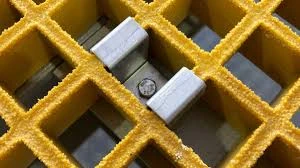
-
 Afrikaans
Afrikaans -
 Albanian
Albanian -
 Amharic
Amharic -
 Arabic
Arabic -
 Armenian
Armenian -
 Azerbaijani
Azerbaijani -
 Basque
Basque -
 Belarusian
Belarusian -
 Bengali
Bengali -
 Bosnian
Bosnian -
 Bulgarian
Bulgarian -
 Catalan
Catalan -
 Cebuano
Cebuano -
 China
China -
 China (Taiwan)
China (Taiwan) -
 Corsican
Corsican -
 Croatian
Croatian -
 Czech
Czech -
 Danish
Danish -
 Dutch
Dutch -
 English
English -
 Esperanto
Esperanto -
 Estonian
Estonian -
 Finnish
Finnish -
 French
French -
 Frisian
Frisian -
 Galician
Galician -
 Georgian
Georgian -
 German
German -
 Greek
Greek -
 Gujarati
Gujarati -
 Haitian Creole
Haitian Creole -
 hausa
hausa -
 hawaiian
hawaiian -
 Hebrew
Hebrew -
 Hindi
Hindi -
 Miao
Miao -
 Hungarian
Hungarian -
 Icelandic
Icelandic -
 igbo
igbo -
 Indonesian
Indonesian -
 irish
irish -
 Italian
Italian -
 Japanese
Japanese -
 Javanese
Javanese -
 Kannada
Kannada -
 kazakh
kazakh -
 Khmer
Khmer -
 Rwandese
Rwandese -
 Korean
Korean -
 Kurdish
Kurdish -
 Kyrgyz
Kyrgyz -
 Lao
Lao -
 Latin
Latin -
 Latvian
Latvian -
 Lithuanian
Lithuanian -
 Luxembourgish
Luxembourgish -
 Macedonian
Macedonian -
 Malgashi
Malgashi -
 Malay
Malay -
 Malayalam
Malayalam -
 Maltese
Maltese -
 Maori
Maori -
 Marathi
Marathi -
 Mongolian
Mongolian -
 Myanmar
Myanmar -
 Nepali
Nepali -
 Norwegian
Norwegian -
 Norwegian
Norwegian -
 Occitan
Occitan -
 Pashto
Pashto -
 Persian
Persian -
 Polish
Polish -
 Portuguese
Portuguese -
 Punjabi
Punjabi -
 Romanian
Romanian -
 Russian
Russian -
 Samoan
Samoan -
 Scottish Gaelic
Scottish Gaelic -
 Serbian
Serbian -
 Sesotho
Sesotho -
 Shona
Shona -
 Sindhi
Sindhi -
 Sinhala
Sinhala -
 Slovak
Slovak -
 Slovenian
Slovenian -
 Somali
Somali -
 Spanish
Spanish -
 Sundanese
Sundanese -
 Swahili
Swahili -
 Swedish
Swedish -
 Tagalog
Tagalog -
 Tajik
Tajik -
 Tamil
Tamil -
 Tatar
Tatar -
 Telugu
Telugu -
 Thai
Thai -
 Turkish
Turkish -
 Turkmen
Turkmen -
 Ukrainian
Ukrainian -
 Urdu
Urdu -
 Uighur
Uighur -
 Uzbek
Uzbek -
 Vietnamese
Vietnamese -
 Welsh
Welsh -
 Bantu
Bantu -
 Yiddish
Yiddish -
 Yoruba
Yoruba -
 Zulu
Zulu
Choosing the Right Fiberglass Flange for Your Project Needs and Specifications
Understanding Fiberglass Flanges A Comprehensive Overview
Fiberglass flanges are essential components used in a wide range of industries, including construction, oil and gas, and wastewater treatment. These flanges are designed to connect pipes, valves, pumps, and other equipment, ensuring a reliable and leak-proof seal. The unique properties of fiberglass make these flanges an optimal choice for various applications, particularly in environments where corrosion and extreme temperatures are concerns.
One of the key advantages of fiberglass flanges is their resistance to corrosion. Unlike metal, fiberglass does not rust or corrode when exposed to moisture, chemicals, or harsh environmental conditions. This quality is particularly beneficial in industries such as chemical processing or marine applications, where equipment is frequently exposed to corrosive substances. By using fiberglass flanges, companies can reduce maintenance costs and prolong the lifespan of their piping systems.
In addition to corrosion resistance, fiberglass flanges are lightweight, making them easier to handle and install compared to traditional metal flanges. This reduced weight can lead to lower shipping costs and make transportation to remote job sites more feasible. Despite their lightweight nature, fiberglass flanges still offer excellent strength and durability, ensuring they can withstand significant pressure and mechanical stress.
fiberglass flange

The manufacturing process of fiberglass flanges typically involves combining glass fibers with a resin matrix to create a composite material. This process allows for various customization options, such as different shapes, sizes, and thicknesses, catering to specific project requirements. Furthermore, the versatility of fiberglass means that these flanges can be engineered to meet various standards, including ANSI and ASTM specifications.
Temperature tolerance is another crucial factor to consider. Fiberglass flanges can perform effectively within a wide temperature range, making them suitable for hot or cold applications. This thermal stability further enhances their performance in critical environments, such as power plants or industrial processes.
Lastly, the environmental benefits of fiberglass cannot be overlooked. As industries strive to become more sustainable, fiberglass flanges are often viewed as an eco-friendly option. Their longevity, reduced need for replacement, and minimal environmental impact contribute to greener operations.
In conclusion, fiberglass flanges represent a reliable, durable, and cost-effective solution for various piping applications. Their corrosion resistance, lightweight nature, and thermal stability make them an ideal choice for many industries. As technology advances and the demand for efficient and sustainable materials grows, fiberglass flanges will likely play an increasingly significant role in engineering solutions for the future.









